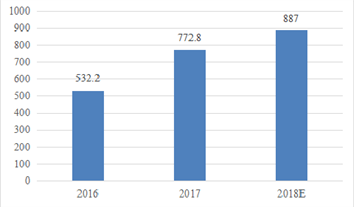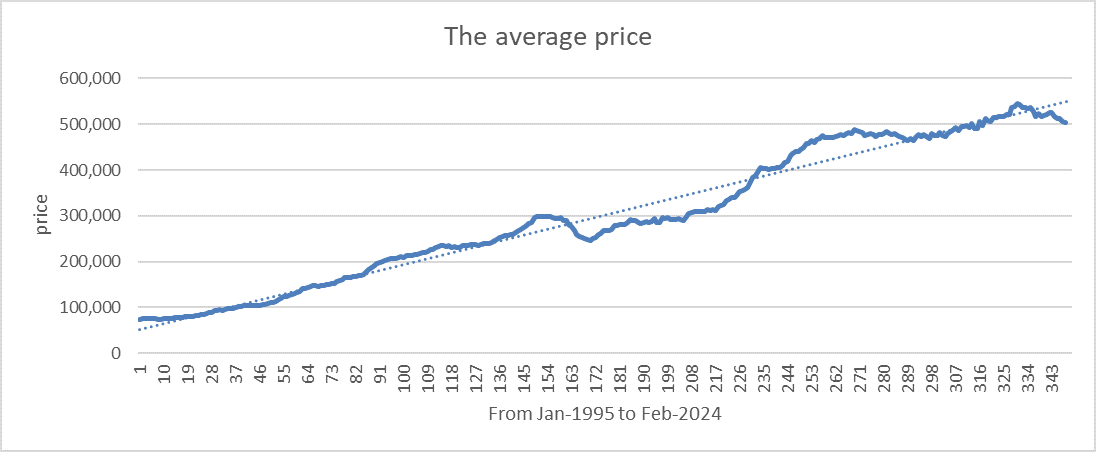

Volume 105
Published on September 2024Volume title: Proceedings of the 3rd International Conference on Financial Technology and Business Analysis
This paper examines the impact of China’s digital economy on inequality, focusing on employment, income inequality, innovation, and competition. Overall, the digital economy creates inequality in individuals and firms. It exacerbates the income disparity between high-skilled and low-skilled workers, and/or across different regions. It also creates an oligopolistic structure in the digital markets and new industries, where big firms use network effects and incumbency advantage to reduce competition. Therefore, challenges arise for antitrust enforcement due to the dynamic nature of the digital economy and attention platforms. Nevertheless, the digital economy optimizes employment structure, having a net effect of greater creation effect than substitution effect. It also increases innovation efficiency and opportunities for smaller players in the traditional sectors. Therefore, the digital economy has positive implications for economic growth. Overall, it is crucial to encourage equality and stimulate economic growth by implementing certain policies, including measures to enhance labor quality, reduce regional disparities, and strengthen antitrust regulations.

 View pdf
View pdf



Nowadays, e-sports has become one of the rapidly growing emerging industries in the world, and its business model is becoming increasingly mature. This paper provides a systematic review of academic literature on the eSports industry through the documentary method, demonstrates the rise of eSports as a cultural and economic phenomenon, and analyzes the dynamic development of eSports as an emerging industry and its business potential. By examining eSports business models, this paper not only discusses how eSports can attract a wide range of audiences and investors through innovative business models, but also explores the major challenges facing this industry and their implications for future business strategies, aiming to provide valuable recommendations for policymakers and researchers in the eSports industry. The study shows that the business model of eSports relies on diversified revenues, and its rapid development has not only benefited from technological innovation and globalization trends but also from policy support and the positive response and investment of the capital market. The eSports industry has become an important part of the global digital economy, with strong market potential and the possibility of sustained growth.

 View pdf
View pdf


In today's digital age, life-sharing social media has become an important part of an individual's daily life. These platforms, such as Instagram and Twitter, are not only places where people share their lives but also important influencers and disseminators of consumer culture. With the popularity of social media and the development of technology, consumers' purchasing behaviour and consumption awareness have also been affected in an unprecedented way. However, although it is known that these platforms play an important role in consumer behavior, the specific mechanisms of their influence and the actual impact on consumer behavior are still worthy of in-depth study. The purpose of this study is to explore the impact mechanism of life-sharing social platforms on consumer behaviour and their significance in digital marketing. Through the research method of comprehensive literature analysis, this paper analyzes the role of life-sharing social media platforms in consumer decision-making, brand cognition, and purchasing behaviour. The research finds that the development of social media platforms expands consumers' social networks and information access channels, which in turn affects their purchasing decisions and brand preferences. This finding has important academic and practical implications for optimizing social media marketing strategies and driving progress in the field of consumer behavior research.

 View pdf
View pdf



The aim of this research is to investigate the potential correlation between housing prices and unemployment rates in London. Specifically, the study focuses on analyzing the relationship between the average housing price and the unemployment rate in the city. To achieve this objective, this paper employs statistical methods such as the t-test and regression analysis to determine whether there is a significant connection between the two variables. Additionally, a line chart is utilized to visually represent the changes in housing prices over time, providing a clearer understanding of the trends and patterns. By conducting this comprehensive analysis, we hope to gain insights into the potential impact of unemployment on housing prices in London.

 View pdf
View pdf


In recent years, the homemaking service industry in China has developed rapidly, with a market size of trillions RMB. However, conflicts and poor trust between homemaking service provider (companies and practitioners) and consumers remain prominent. Credit issues have become the main bottleneck for the high-quality development of the homemaking service industry. These credit issues are mainly caused by factors such as intermediary enterprise model, low capability and bad service quality for practitioners, information asymmetry, lack of industry credit system, etc. This article uses game theory to analyze the integrity mechanism in the homemaking service industry and proposes a targeted optimization method for the credit system of homemaking service. The case study shows that the enterprise’s credit has decreased, and its production and operation have fallen into difficulties due to the dishonest operation during the game between the enterprise and consumer. Through game theory analysis, it can be found that information disclosure mechanisms and reward and punishment mechanisms play an important role in optimizing the credit of homemaking services. Cooperative games help build stable trust relationships and improve service quality.

 View pdf
View pdf



The COVID-19 pandemic has significantly impacted the global economy, with the food sector particularly affected due to the necessity to maintain operations amidst health and safety challenges. This research report examines the operational dilemmas faced by Greggs, a prominent British bakery chain, in the wake of the pandemic. Utilizing PESTLE analysis, the study explores the political, economic, social, technological, legal, and environmental factors influencing Greggs' strategic decision-making and operations. Key findings indicate that Brexit and health regulations have introduced uncertainties and risks, while technological advancements offer opportunities for improved customer experience and operational efficiency. The study employs the SMART model to outline Greggs' goal of expanding its retail presence while maintaining food quality and safety. Market research methodologies, including questionnaires, interviews, and focus groups, reveal consumer preferences and the impact of COVID-19 on Greggs' accessibility and sales. The report concludes with a marketing mix summary, emphasizing the need for digital transformation and innovative strategies to adapt to the new consumer landscape shaped by the pandemic.

 View pdf
View pdf


With rapid technological development, technologies such as artificial intelligence, blockchain, cryptocurrency and mobile payment are constantly promoting changes in the traditional financial industry and deriving the emerging ecosystem of financial technology. This article mainly discusses how corporate culture, governance structure, laws and regulations in the financial technology ecosystem affect financial technology companies to maintain a certain competitiveness in the relevant ecosystem. Among them, a strong cultural atmosphere can help fintech companies stabilize their position in the system, and a stable governance structure can help fintech companies and enterprises avoid risks and make correct strategic decisions, thereby promoting the development of the entire fintech industry. Laws and regulations are mainly reflected in fintech companies' compliance with financial regulations in different regions, such as anti-money laundering, anti-terrorist financing, and the protection of customer data and privacy, thereby enhancing customers' trust in fintech companies. These three aspects jointly stabilize the position of financial technology companies in the financial technology ecosystem and promote the continuous development of the financial technology ecosystem.

 View pdf
View pdf


Internet marketing has undergone significant changes in the digital age, greatly influencing customer behavior, purchasing habits, and corporate marketing strategies. This research examines the impact of social media marketing on increasing strategic engagement and brand awareness in the luxury automotive industry, with a specific focus on Mercedes-Benz compared to other luxury brands. By conducting comparative analysis, case studies, and data analysis, this study demonstrates how luxury automotive companies employ social media content to enhance brand awareness and engage consumers. The results indicate that Mercedes-Benz’s comprehensive social media strategy, which includes visually appealing content and interactive campaigns, has successfully improved brand equity and consumer response. This research underscores the importance of implementing an advanced social media marketing strategy for luxury brands to uphold their reputation and cultivate long-term customer loyalty.

 View pdf
View pdf



The fluctuation of housing prices and its influencing factors are important research topics in economics. Under the current background of rapid globalization and urbanization, understanding the driving factors of housing prices is not only an important contribution to academic research but also has important guiding significance for policymakers and individual home buyers. This paper explores the key factors affecting housing prices, focusing on the impact of variables such as living space, land space, housing landscape, housing conditions, housing quality, and housing construction year on housing prices. This study uses multiple regression analysis to analyze the US housing price data set. The results show that living space, housing landscape, housing quality, and housing construction year have statistically significant effects on housing prices at a significance level of 1%. This study provides an effective reference to real estate developers, policymakers, and individual home buyers, which can help them understand market demand more deeply, make decisions that are more in line with market trends, and promote the dynamic and functional development of the real estate market.

 View pdf
View pdf


China's e-commerce industry has experienced a substantial digital transition following the COVID-19 outbreak. This transformation is evident in various dimensions, such as technical advancements, shifts in customer behavior, and adaptations in operational frameworks. This article looks at how COVID-19 has affected China's e-commerce sector and how it has affected businesses' digital transformation. It is discovered through data and case analysis analysis that digital transformation improves competitiveness, lowers costs, and increases efficiency. However, it also emphasizes that a variety of issues, including personnel, management, technology, and so forth, must be taken into account while implementing digital transformation. Lastly, a few recommendations are made to help China's e-commerce sector succeed in the digital revolution.

 View pdf
View pdf




